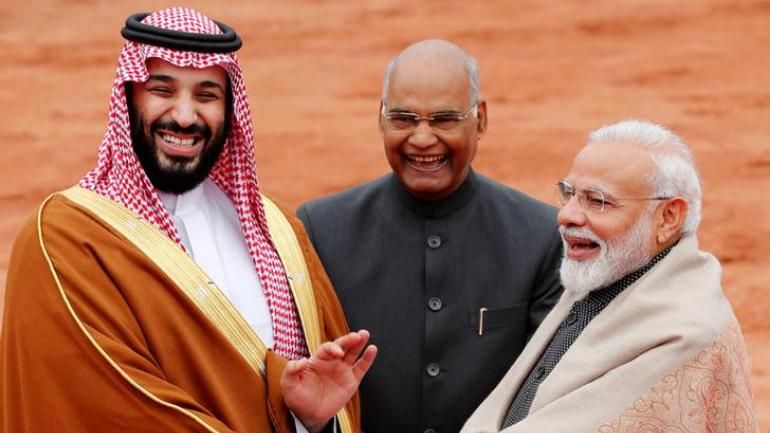Reliance And Saudi Aramco's Indian Adventure
Aug 13, 2019 • 10 views
Like all the other Gulf countries, Saudi Arabia has large oil deposits but unlike its neighbours, it has the world’s most profitable company- Saudi Aramco. Why are we talking about Saudi Aramco, you ask? RIL announced one of the biggest Foreign Direct Investment (FDI) deals in India by finalising a deal with Saudi Aramco. The company picked up 20% stake in Reliance’s oil-to-chemical (O-2-C) division, for an enterprise value of USD 75 billion. Oil-to-chemicals division is formed by combining refining and petrochemicals businesses and coverts petroleum into chemicals.
To understand the importance of this deal, let’s break it down.
First, Saudi Aramco’s balance sheet and its revenue have so many zeros that it could very well be an entire county’s GDP. It is, in fact, more than the GDP of some countries. The company recorded a profit of- not revenue, only profit- $111.1 billion in 2018, according to International ratings agencies Fitch and Moody's. It is more profitable in all the other 5 major oil companies combined. Aramco also dethroned Apple as the world's most profitable firm. The company controls and own world’s second largest crude oil reserves. It is also the second largest producer of oil on the daily basis. Saudi Aramco operates the world's largest single hydrocarbon network, the Master Gas System. This deal will ensure a perennial flow of capital and crude oil to India from Saudi through RIL.
Second, The Company is state-owned. This deal is important because it comes at a crucial time when Pakistan is trying to polarise the Muslim world on Kashmir issue. Pakistan had set out to diplomatically isolate India following the Modi government’s move to invalidate Article 370 and Article 35A, revoke the statehood and autonomous status of Jammu and Kashmir and bifurcate the state into two Union territories — Jammu and Kashmir, and Ladakh. The deals shattered Pakistan’s dream. It also shows Saudi Arabia’s solidarity with India.Modi’s foreign policy on strengthening ties with West Asia worked and Pakistan’s own diplomatic isolation surfaced. A major development towards the growing bilateral ties was when Saudi Arabia lifted a 70-year-old airspace ban in March 2018 to give Air India permission to fly over its territory and reach Israel. In this context, the Aramco-RIL deal assumes even greater significance.
Third, the deal is aimed at making Reliance a ‘zero-net-debt’ company. The Company’s owner, multimillionaire, Mukesh Ambani is planning on entering India’s retail market with plans for a joint venture with Tiffany & Co to open stores for the jeweller in India, and for the British toy-store chain Hamleys. For this to shape up in reality, the company needs funds and investment. Also, the rolling out of ambitious Jio plan has cost the company millions in debt. Reliance had a net debt of 1.54 lakh crore rupees ($22 billion) at the end of March 31, according to Mr Ambani. Zero-net-debt would mean the borrowings would fall below the company's cash reserves. Reliance's debt is backed by "extremely valuable assets”, implying the company would not face the same fate as of Anil Ambani’s, which has been struggling to pay creditors while his mobile carrier has slipped into bankruptcy. With this investment, Reliance Retail might successfully achieve its aim to be among the world's top 20 retailers in the next five years.

Since the nationalisation of Saudi Aramco, the company has been investing overseas in various non-oil sectors including technology, part of the country’s plan to become less dependent on petroleum. The move helps RIL reduce its dependence on the hydrocarbon business, at a time when globally, and including India, the move towards electric vehicles (EVs) is picking pace.
The deal could prove beneficial to both the parties and countries involved. It might open up new avenues for investment and push India ahead on its path of development.
